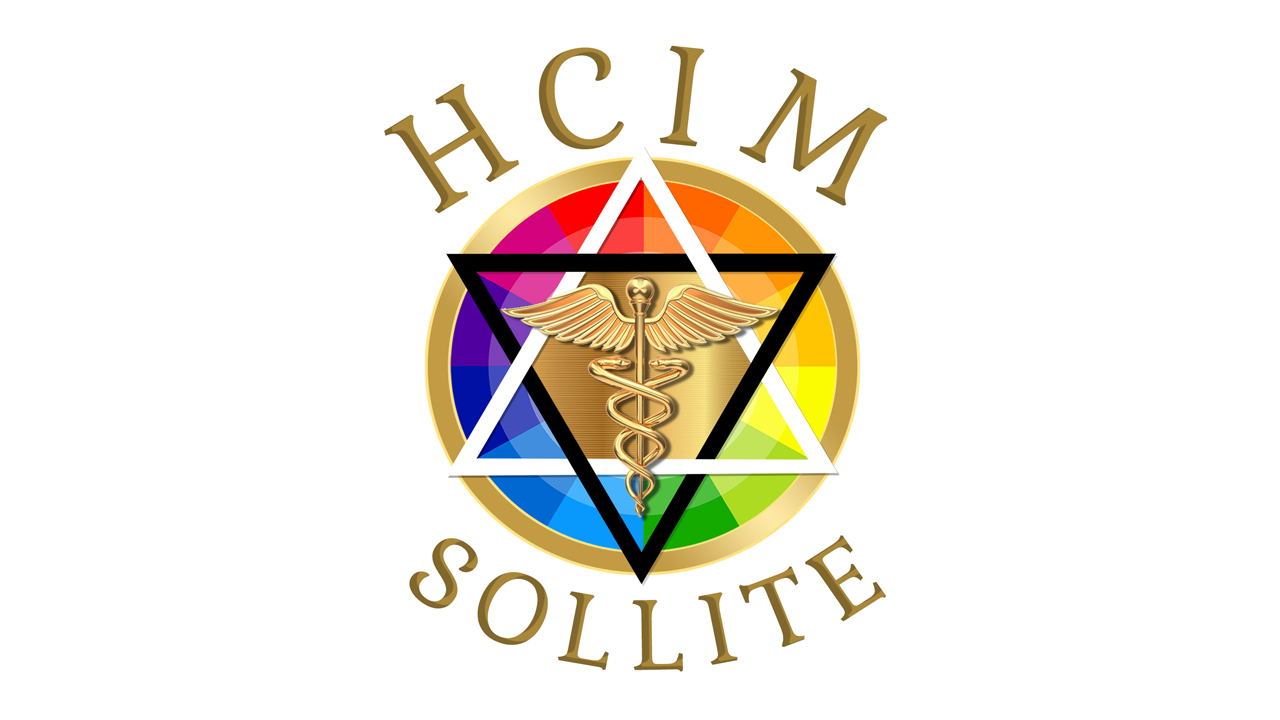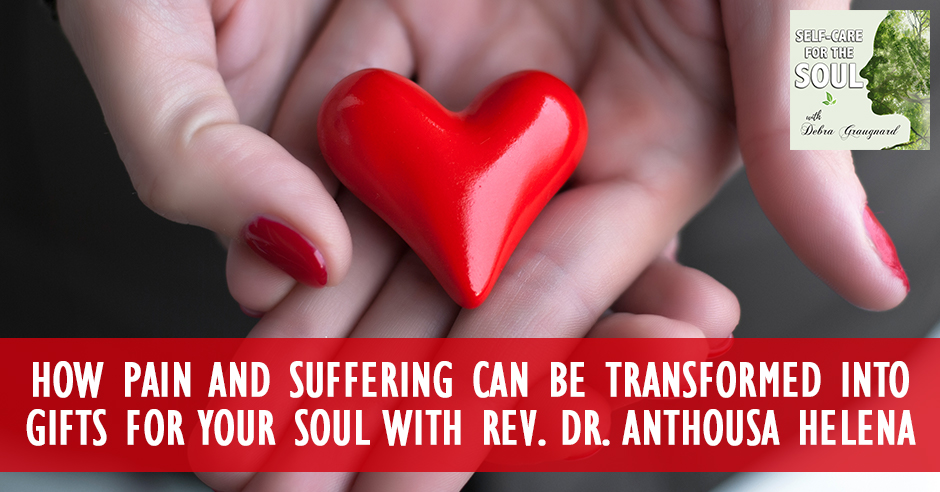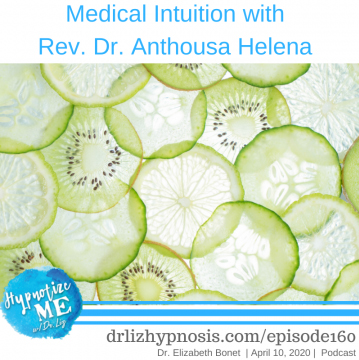Spirituality & Illness
by Rev. Dr. Anthousa Helena
 The underlying condition of illness reflects spiritual conflict. There is a basic element of feeling separated from Self, the Divine, God, the Source, the Perfect One, Higher Self, whatever name or label is given to being connected and in tune with one’s true nature.
The underlying condition of illness reflects spiritual conflict. There is a basic element of feeling separated from Self, the Divine, God, the Source, the Perfect One, Higher Self, whatever name or label is given to being connected and in tune with one’s true nature.
Addressing the spiritual needs of people is a necessary adjunct to traditional treatment which has come to largely rely on establishing a diagnosis and prescribing drugs. The meaning of soul healing has been overlooked if not forgotten. Drugs control symptoms but don’t get to the underlying cause of symptoms.
What is needed is another human being who has taken the time and effort to contemplate the meaning of his or her own life; one who has experienced the pain and sorrow as well as the love and joy in achieving some degree of self understanding; who knows that the human spirit is the essence of life, – the heart of creativity, wisdom, love and power – often buried in the unconscious requiring a harmonious and sacred connection with another human being. We affect and are affected by all we come in contact with including our environment.
the goal is reintegrating spiritual psychologies with modern medical science; bridging the gap between Spirituality and Medicine. I define spirituality as the essence of life and equate it with breathing, the often taken for granted permanent component of being. Just as breathing determines life as opposed to death, spirituality is essential for the health and well being of an individual.
Being unconscious of the importance of spirit can lead to feelings of emotional, physical and mental distress culminating in crisis. Crisis is an emotionally significant or radical change of stability in a person’s life; an unstable or crucial state of affairs in which a decisive change is impending; one with the distinctive possibility of a highly undesirable outcome. It is in these times of crisis that the human soul yearns for divine presence and connection
Crisis, and conflict produce feelings of anger, hate, envy and betrayal. One is overcome with anxiety and fear. When fear is too great, the reasoning mind begins to fail. When the mind is so frightened and the wounds so painful, that it may manifest as deep depression and suicidal ideation. Confrontation with the possibility of one’s own death “acts as a catalyst that can move one from one state of being to a higher one.”
Unfortunately, this state of chaos and disequilibrium is most often experienced as confusion, disorder, and a complete lack of structure and organization. “There is a transformative quality of order underlying chaos which focuses on the dynamics of the system as a whole, or what the parts are doing all together, rather than individually.”
Instead of holding onto stubborn habitual thinking that we can control and order our world by avoiding the pain of chaos, we are challenged to see and experience the universe as a constantly changing process of energy and an interconnecting web of all existence. By allowing chaos to play a critical role in transforming our human consciousness and accepting that ‘most of reality’, instead of being orderly, and stable, is seething and bubbling with change and disorder.
Hopefully, when a person experiences and suffers the physical, mental and emotional distress, he or she will reach out for help. At that point it is crucial to find a mental health practitioner who has personally experienced some healing of his or her own sacred sorrows and wounds. Too often the turmoil and struggle, of one who is frightened about letting go of old outmoded behaviors and restrictive attitudes to risk learning a new way of being in the world, is misunderstood, by traditional therapists, as psychopathology rather than a harbinger of transformation.
Carl Jung talks about the ordeal of his own voluntary confrontation with the unconscious and his realization the “I could not expect of my patients something I did not dare to do myself.” Jung certainly understood and practiced the critical need of self-understanding as the most important element in the healing process.
Another psychiatrist who clearly understands and advocates the inclusion of spirituality in treating people searching for meaning of existence in life, is Victor Frankl. Frankl states, “A therapist who ignores man’s spiritual side, is giving away one of his most valuable assets.” Frankl believes the goal of psychotherapy is to heal the soul.
Wayne Dyer makes the bold claim that “There’s A Spiritual Response to Every Problem” and proceeds to prove his claim by offering a universal approach to spiritual problem solving drawing on Holy Scriptures in many spiritual traditions from east, west, and anywhere in between without making a claim that any one tradition or practice is superior to any other. Dyer defines spirit as “the formless, invisible energy, which is the source and sustenance of life on this planet.” “Thinking,” he says, “is the source of problems. Your heart holds the answer to solving them.”
In Dyer’s words, “The message is so clear. Become one with spirit and do not doubt or fear your divinity. Move beyond your ego-mind into your higher self.”





